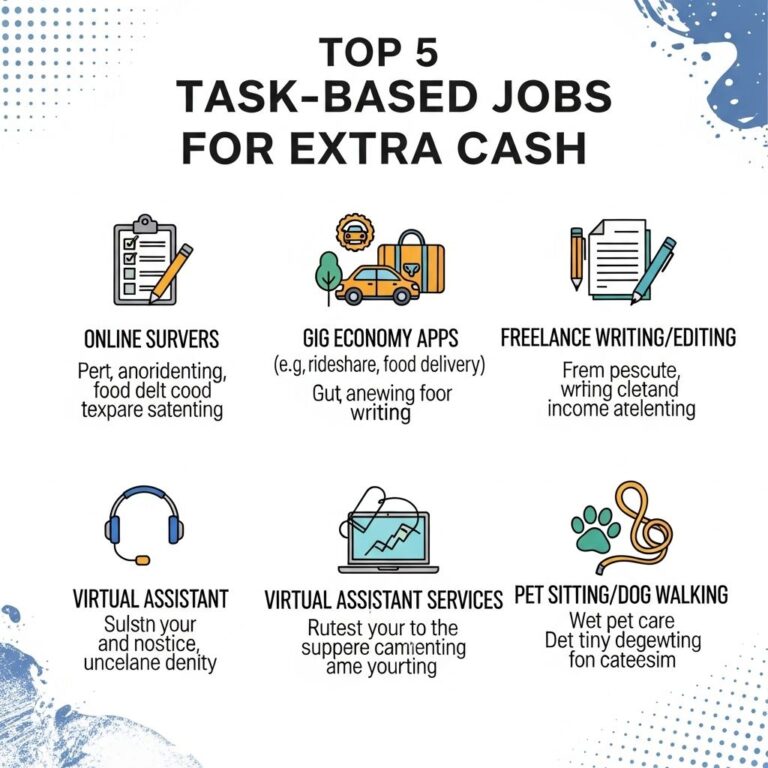Freelancing offers a world of flexibility and independence, but it also comes with its own set of challenges, especially when it comes to taxes. As a freelancer, it’s crucial to understand your tax obligations and ensure you optimize your finances. This article explores essential tax tips that every freelancer should know to navigate the complex world of taxes smoothly.
Table of Contents
1. Understand Your Tax Obligations
Freelancers are typically considered self-employed, meaning you may be responsible for various tax obligations that traditional employees do not face. Here are the key taxes you should be aware of:
- Income Tax: Tax on your earnings.
- Self-Employment Tax: This includes Social Security and Medicare taxes.
- Estimated Taxes: You may need to pay taxes quarterly if you expect to owe more than a certain amount at the end of the year.
2. Keep Detailed Records
One of the most critical aspects of filing taxes as a freelancer is maintaining detailed records of your income and expenses. Here are some tips:
- Use Accounting Software: Programs like QuickBooks or FreshBooks can help track your finances.
- Keep Receipts: Save all receipts for business-related expenses.
- Document Mileage: If you use a vehicle for business, keep a log of your mileage.
Benefits of Keeping Records
Maintaining thorough records can:
- Make tax filing easier.
- Help you identify deductible expenses.
- Provide proof of income and expenses in case of an audit.
3. Know What Deductions You Can Claim
Freelancers can deduct various business expenses to reduce their taxable income. Here are some common deductions:
| Deduction | Description |
|---|---|
| Home Office Deduction | If you work from home, you may qualify for a deduction based on the square footage used for business. |
| Supplies and Equipment | Expenses for tools, software, and materials needed for your work. |
| Internet and Phone Bills | A portion of your internet and phone expenses can be deducted if used for business. |
| Professional Services | Fees paid to accountants, lawyers, or consultants. |
4. Set Aside Money for Taxes
Unlike traditional employees, freelancers often receive their income without tax withheld. This means you need to proactively set aside money to cover your tax liabilities. A general rule of thumb is to save:
- 25-30% of your income for taxes.
Strategies for Saving
To make it easier to save:
- Open a separate savings account for taxes.
- Regularly transfer a percentage of your income into this account.
5. Consider Hiring a Tax Professional
Tax laws can be complicated, especially for freelancers. While you can file your taxes on your own, hiring a tax professional can provide several benefits:
- Expertise: A professional can help you navigate complex tax situations.
- Maximized Deductions: They know what deductions you might overlook.
- Less Stress: They handle the paperwork, allowing you to focus on your business.
6. Pay Estimated Taxes Quarterly
If you expect to owe more than $1,000 in taxes when you file your return, the IRS requires you to make estimated tax payments quarterly. Here’s how to calculate your estimated taxes:
- Estimate your annual income.
- Calculate your expected tax liability.
- Divide that total into four payments throughout the year.
7. Track Your Business Expenses
Keeping track of all business-related expenses ensures that you don’t miss any potential deductions. Categories for tracking can include:
- Advertising and Marketing
- Travel Expenses
- Meal Expenses (50% deductible)
- Subscriptions and Memberships
8. Stay Informed About Tax Regulations
Tax laws are always changing, and staying informed can help you avoid costly mistakes. Here are some ways to keep up:
- Subscribe to tax-related newsletters.
- Follow industry blogs and forums.
- Attend workshops or webinars on tax issues for freelancers.
9. Utilize Tax Software
Tax software can streamline the filing process and help ensure accuracy. Some popular options include:
- TurboTax
- H&R Block
- TaxSlayer
Advantages of Tax Software
The benefits of using tax software include:
- Guided filing process.
- Automatic calculations.
- E-filing options for faster processing.
10. Prepare for an Audit
While audits are rare, being prepared can reduce stress if it happens. Here’s how:
- Maintain organized records of all income and expenses.
- Understand the common audit triggers, such as high deductions relative to income.
- Keep supporting documents for at least three years.
Freelancing is an exciting and rewarding venture, but it comes with unique tax responsibilities. By following these tax tips, you can better manage your finances, minimize your tax burden, and focus more on what you love—your work.
FAQ
What are the key tax deductions available for freelancers?
Freelancers can deduct expenses such as home office costs, business-related travel, software subscriptions, and professional services like accounting.
How do freelancers report their income for tax purposes?
Freelancers report their income using Schedule C (Form 1040) when filing their taxes, detailing their business income and expenses.
What is the self-employment tax and how does it affect freelancers?
Self-employment tax consists of Social Security and Medicare taxes for freelancers, and it’s calculated based on net earnings from self-employment.
Are estimated tax payments required for freelancers?
Yes, freelancers typically need to make quarterly estimated tax payments to avoid penalties at tax time.
Can freelancers deduct health insurance premiums?
Yes, freelancers can deduct health insurance premiums from their taxable income, as long as they meet certain requirements.
What records should freelancers keep for tax purposes?
Freelancers should maintain accurate records of income, expenses, receipts, and invoices to substantiate their tax filings.









